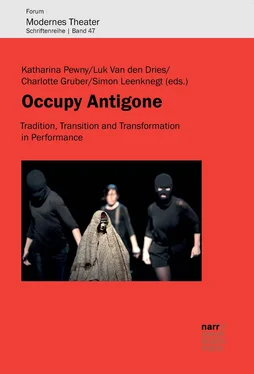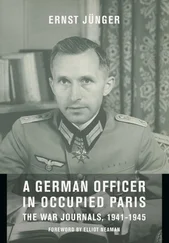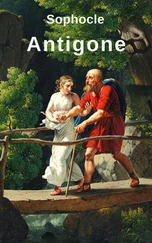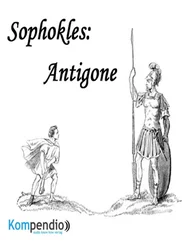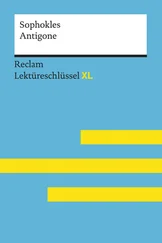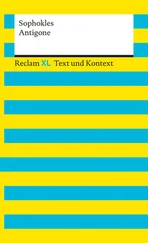Hegel formulated the basic structure of Sophocles’ play as an agon, a competition or a struggle between two incommensurable positions, where neither Antigone, representing the primacy of the family or kinship structures, nor Creon, representing the larger collective of the polis– the state and the law – is willing to compromise. Both of these positions, which are presented in the two first scenes of the play, can be summed up as logical arguments for what is the legal and the ethically right (or proper) action with regard to the burial of Polyneices – Antigone’s brother and Creon’s nephew – after he has been killed in the war between two factions of the family and whose name actually means "manifold strife". According to Samuel Weber “to identify the Hegelian interpretation of Antigonewith the position of Creon, for instance, privileging the authority of the state over that of the family, is to ignore the dialectical structure of the Hegelian text”.2 Instead, Weber claims, there is a “symmetrical negativity”, comparable to Judith Butler’s double negative in her rendering of Antigone’s confession, emphasizing that Antigone’s admission is expressed with a double negation that "I will not deny my deed".3 According to Weber the relations between family and state become transformed into what he describes as “ signifiersof something else […] [which] has to do with the determination of identity in terms of individuality: not individuality as such, but individuality mediated and reflected in its constitutive negativity, which is to say, individuality as ‘spirit’”.4 In terms of the plot of Sophocles’ play this multifaceted negativity gradually leads to three consecutive and inevitable erasures, of individuality, of family and finally of the polisitself. Examining these features of tragedy as a literary genre and in particular of Sophocles’ Antigone– though they are not necessarily limited to drama or performance – I want to argue here that one of the distinguishing features of tragedy is that it both integrates and at the same time confronts and subverts the classical forms of logical argumentation. Logical argumentation and its subversion constitute the ‘ground’ of tragedy on which the perceptions of the tragic as well as of particular literary tragedies are based. The ways in which logical argumentation is privileged while at the same time drawing attention to its limitations are no doubt an important reason why tragedy as a genre, and Antigonespecifically has received such a prominent position in philosophical discourses, in particular with regard to which actions are ethically right or wrong (or humane) and how to seek justice by developing and problematizing legal practices rather than just doing what is ’legal’. Since logical arguments have been embedded in Antigoneas well as in most tragedies, the principles of logic can in turn be extracted from these plays. And even if the theoretical principles of logical argumentation were only fully formulated by Aristotle in the Poeticstwo generations after these plays had been written and performed, the notion of tragedy as it had been practiced by Sophocles was, on the one hand, based on the use of logical argumentation in order to define the positions and relations of the major conflicting characters – in this case of Antigone and Creon – but at the same time also to investigate and define what it means to be human. Being human includes both the ability to make logical arguments based on rational thinking and the use of language, while the tragedies bring about situations where the basic principles of logic are challenged and even reach a liminal point of failure and collapse. And paradoxically, this collapse frequently occurs exactly at the point when someone is trying to define what the characteristics of being human are. But before examining this paradoxical situation in terms of tragedy and the tragic I want to present the two basic principles of formal logic which are activated and challenged by tragedy. First, the theory of deduction, for example in the so-called ‘Barbara syllogism’, beginning with a universal proposition which does not have to be proven empirically, but is based on some common understanding and can therefore also refer to fictional/mythical situations that “All x are y” or “All humans are mortal” or “The Gods are immortal”. Such a universal statement is followed by a particular statement, like the claim that “Socrates is a human” from which we draw the necessary conclusion that “Socrates is mortal”. The second principle of formal logic that is of importance in this context is the three Classical Laws of Thought: the Law of Identity, the Law of the Excluded Middle, and in particular the Law of Non-contradiction. The Law of Identity is based on the proposition that “A is A and not not-A”, the Law of the Excluded Middle on “P is either true or false” and the Law of Non-contradiction that “P and not-P” is always false.5 Even if Aristotle no doubt was familiar with a large number of literary works when he formulated these basic principles of logic, he never explicitly associated the syllogism, which can in effect be seen as a basic narrative ‘scaffolding’ for the narrative kernels in tragedies. But Aristotle’s self-evident, even seemingly ’trivial’ formulation in chapter 7 of the Poetics, that a tragedy must have three parts in order to be complete – a beginning, a middle and an end – must not be understood naively, as if Aristotle was considering the three acts in a play, but rather as an implied reference to the three parts of the deductive syllogism: A beginning [Aristotle claims] is that which does not itself follow anything by causal necessity, but after which something naturally is or comes to be. An end, on the contrary, is that which itself naturally follows some other thing, either by necessity, or as a rule, but has nothing following it. A middle is that which follows something as some other thing follows it. A well-constructed plot, therefore, must neither begin nor end at haphazard, but conform to these principles.6 A narrative which begins with something “which does not itself follow anything by causal necessity, but after which something naturally is or comes to be”, and ends with “nothing following it” could just as well be a deductive syllogism, which Aristotle defined in the Prior Analyticsas “an argument in which when certain things are laid down something else follows of necessity in virtue of their being so”.7 It is also possible to show that what can be said about tragedy as a whole is also true of its parts, which are the focus of this discussion. But I will not develop this idea in detail here. At this point I am thus not examining the comprehensive syllogistic structure of any particular tragedy, which is apparently Aristotle’s concern in the above passage from the Poetics. My focus is rather to clarify how a specific tragedy integrates the logical structures presented by the characters and how their contradictory argumentations, in situations of conflict through an agon, affect our understanding of what it means to be human. On the one hand, these arguments are framed within a combination of social, political, religious, ethical and ideological contexts, which open up a broad range of hermeneutical horizons, which most likely, in cases like Antigone, can activate the readers, directors and spectators for new and innovative interpretations in increasingly more complex contexts and situations, testing our ability to contain and even to accept the tensions between the logical necessities of the underlying syllogisms in relation to the randomness and intrinsic instability of the broad range of such social, political and ideological contexts in which they have been or can be embedded. At the same time, these contextualisations can also be developed and expanded by confronting different logical arguments with each other as they are presented and contextualized within the psychic universes of the characters.
Читать дальше
